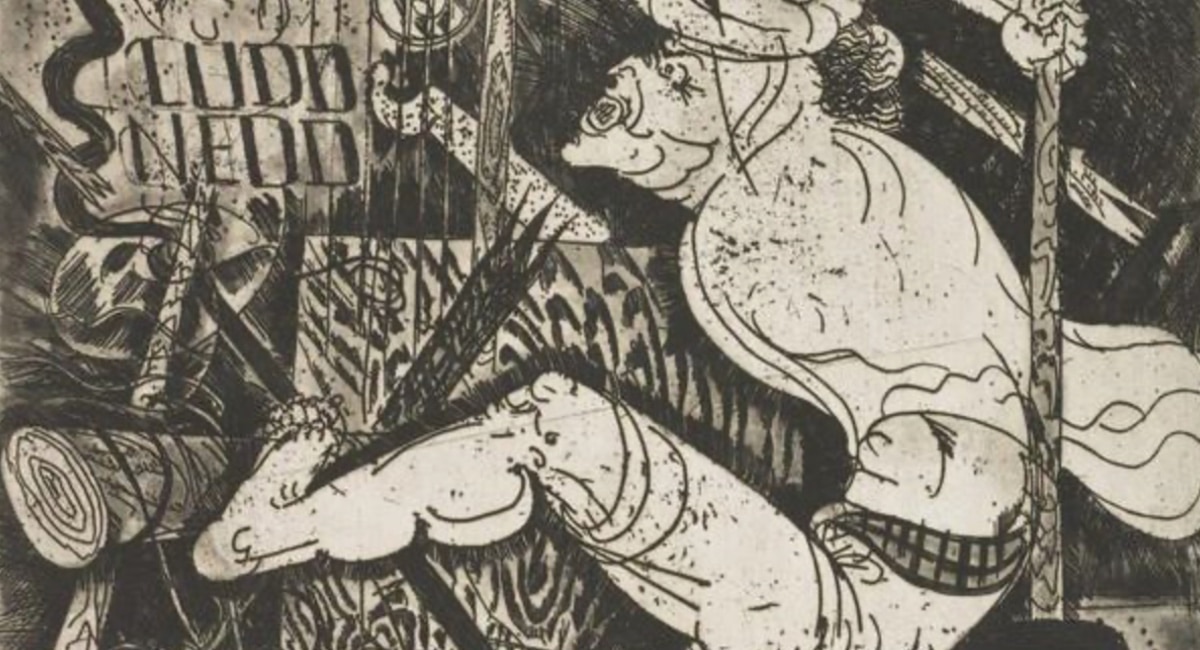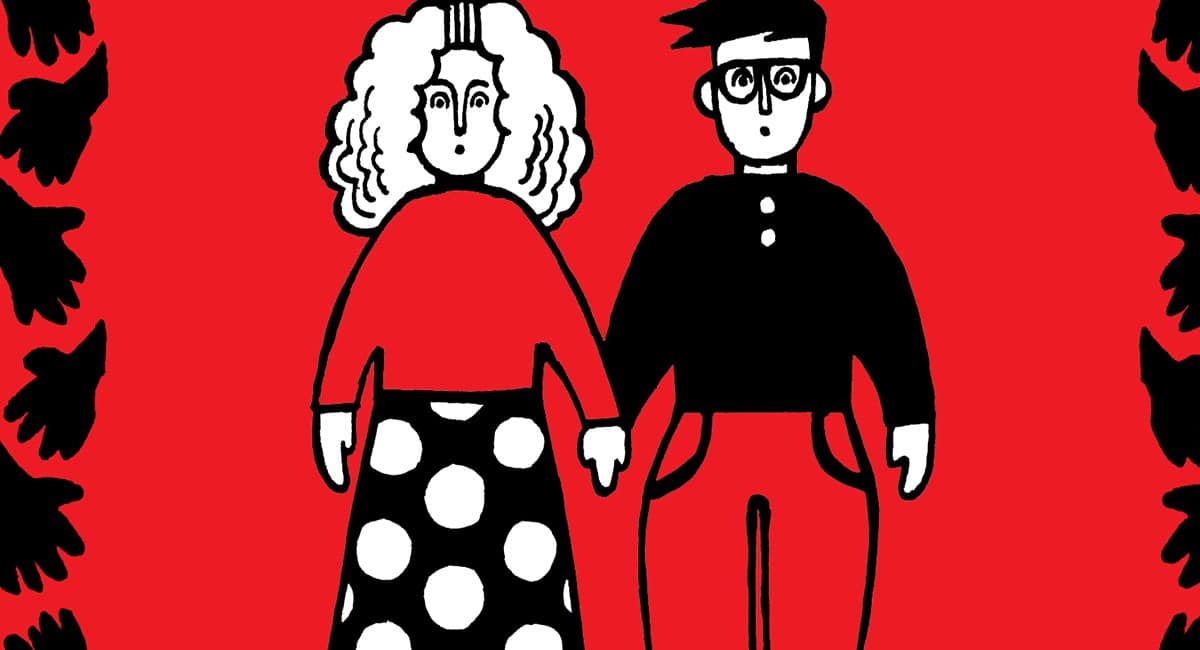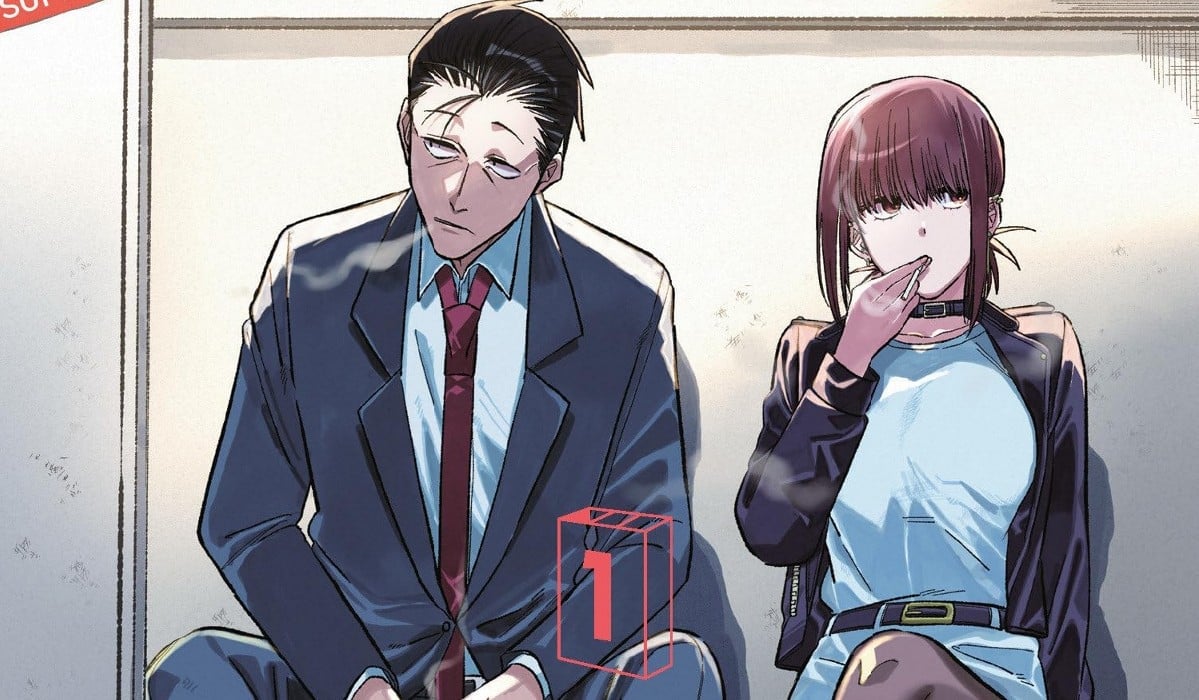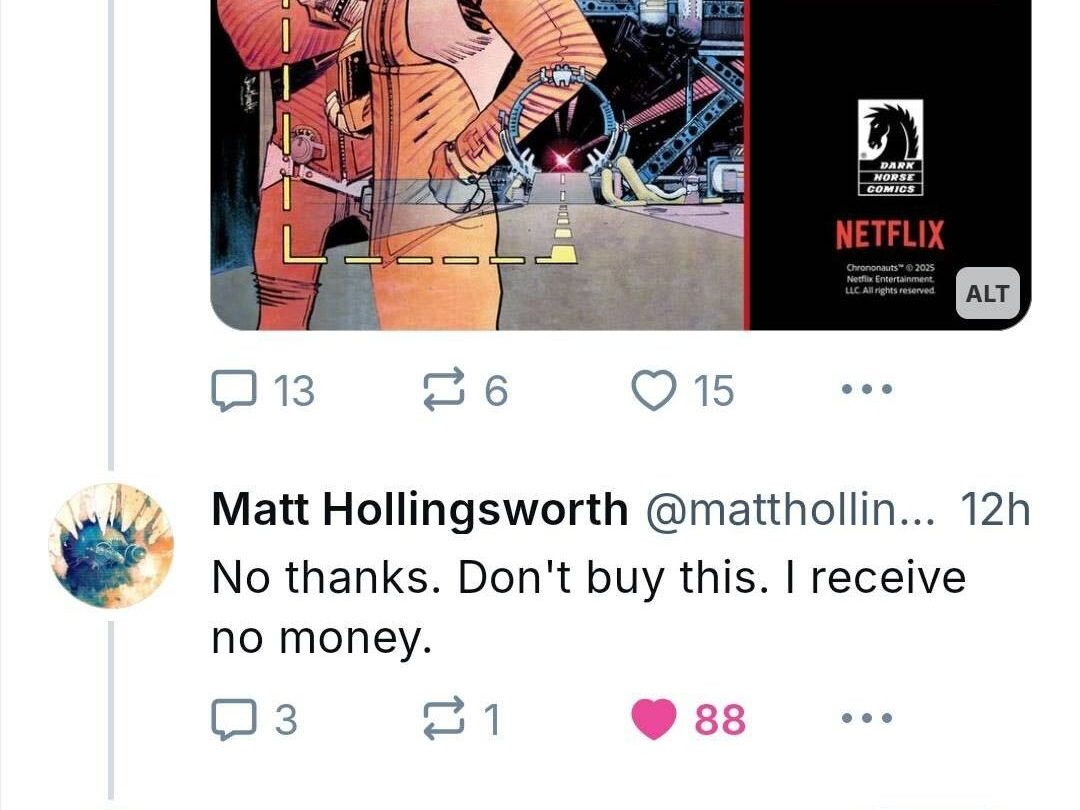Leonard Pierce | May 21, 2025
It is, to put it mildly, a difficult time to be Jewish in America. With a right-wing government in power and reactionary mobs being whipped up by disingenuous media grifters, antisemitism is on the rise, but that’s not really anything new. What is new is that the antisemitism is being blamed broadly on the left, and more specifically on leftist Jews who have had the temerity to condemn the actions of the state of Israel in its mass murder of Palestinian people. Eighty years after the Holocaust, Zionists and their allies on the right have managed to co-opt the fight against antisemitism and turn it into a tool for persecuting and silencing Jewish people and promoting, not destroying, fascism.
There is no better comics artist built for this moment than Eli Valley. The author of the impressive Diaspora Boy, Valley’s pull-no-punches approach to calling out bogus claims of antisemitism, and of holding up a blood-stained mirror to the genocidal practices of Israel and its primary benefactor, the United States, has made him one of the most reviled figures on social media. (There’s even a fun blurb on the book’s cover from one of his more prominent detractors.) But in the great tradition of Jewish writers and artists who refuse to be silent in the face of hatred, violence, and condemnation, Valley is not just willing to fight; he’s eager and enthusiastic about bringing the fight to his enemies.

Museum of Degenerates: Portraits of the American Grotesque begins with a cartoon called “1939 Debate” from The New Republic in 2015; with Valley’s typical pugnaciousness, it portrays Donald Trump alongside other G.O.P. candidates (some now forgotten, others infamous), all spewing what at first look like cruel antisemitic statements, but which are in fact quotes from the Republican candidates with the word “Jewish” replacing the word “Syrian”. It sets the tone for the rest of the book, but its style, themes, and approach go back much further than that.
As Valley painstakingly explains in Museum’s introduction, antisemitism has always seen Jewish reactionaries and Jew-hating authoritarians making dangerous bedfellows, going all the way back to Max Nordau — the co-founder of Zionism, along with Theodor Herzl — penning a best-selling book in which he referred to artists and writers as degenerates, condemned homosexuals, and used phrenology and eugenics to damn criminals, sex workers, and undesirables. The book was a huge influence on the century’s most notorious antisemite, Adolf Hitler.
 Just as Valley’s work is thematically tied to this historical moment of madness when Zionists made common cause with antisemites to vilify artists, radicals, and dissidents, his visual style dates back over various highlights of graphic art from the past century, including the "degenerate" art hated by both Nordau and the Nazis — the surrealists and dadaists of the 1920s (Valley himself claims George Grosz and Otto Dix as influences), Jewish-American cartoonists of the 1930s and '40s, the lurid crime and horror comics of the 1950s (which can be seen in the book’s colorful and aggressive EC-styled cover), the grotesqueries of Ralph Steadman and Gerald Scarfe, and a handful of the underground artists of the ’60s and ‘70s. But he has a sharp, rough edge all his own, operating in blazing primary colors, portraying his subjects as literal monsters of the id, all appetite and grievance, human corpses in various states of decay cannibalizing the living to maintain their own undead vigor.
Just as Valley’s work is thematically tied to this historical moment of madness when Zionists made common cause with antisemites to vilify artists, radicals, and dissidents, his visual style dates back over various highlights of graphic art from the past century, including the "degenerate" art hated by both Nordau and the Nazis — the surrealists and dadaists of the 1920s (Valley himself claims George Grosz and Otto Dix as influences), Jewish-American cartoonists of the 1930s and '40s, the lurid crime and horror comics of the 1950s (which can be seen in the book’s colorful and aggressive EC-styled cover), the grotesqueries of Ralph Steadman and Gerald Scarfe, and a handful of the underground artists of the ’60s and ‘70s. But he has a sharp, rough edge all his own, operating in blazing primary colors, portraying his subjects as literal monsters of the id, all appetite and grievance, human corpses in various states of decay cannibalizing the living to maintain their own undead vigor.
The book is presented in chronological order from 2015 on, following Trump’s first term through Joe Biden’s directionless victory and gaining in intensity and anger in the days after Israel’s murderous reaction to the terrorist attacks of October 2023. It ends just before the Democratic Party, unwilling to distance itself from the ethnic cleansing of Gaza, lost the most winnable election in history and put Trump back in power; its final cartoon features Biden executing an endless row of helpless Palestinian civilians while claiming “I’m doing everything I can to stop this!” Needless to say, this sort of painful truth-telling did not endear him to many in the United States, and Valley has arguably become the most important cartoonist in America and one of the most hated figures on the internet by liberals and conservatives alike.
Valley’s Americans (and others) are grotesque indeed: Elon Musk in a shabby half-suit of Iron Man armor, boasting about his mission to Mars while producing nothing but a massive stream of literal shit; Donald Trump, a huge indifferent mass of pale and putrid flesh, bragging about the size of his penis; Nancy Pelosi and Chuck Schumer, their faces made into grinning skulls by the tightening of their own rotting flesh, promising a drowning figure that they can do nothing to help, but they’re happy to get more donations; a weeping Hitler barely able to carry forward his campaign of extermination, so hurt are his feelings at being called a fascist.

Almost no one is spared in Valley’s savage portrayals, and he does not choose to employ much in the way of subtlety or subtext. Only the victims are portrayed as recognizable and human as they are led into various meat grinders by the skeletal limbs, throbbing veins, and mad, sparkling eyes of their persecutors. Each piece is accompanied by blocks of text that explain the circumstance, background, and reasoning behind the cartoon. These are as calm, cool, and reasoned as the illustrations are provocative, assaultive, and vicious. For what Valley is doing is simply flipping the script of a century of antisemitic propaganda; with clear intention and lethal effectiveness, he portrays the powerful people who harm the weak and scapegoat others for their own misdeeds as misshapen, preternatural things, and the innocent people who suffer at their hands as, if not heroic, at the very least recognizable. He humanizes those who those leaders demand we see as less than human, and forcibly strips everything human away from the people who have declared themselves above common humanity.
Vividly shocking, revealingly detailed, and with no interest whatsoever in playing a game of respectability or sophisticated obfuscation, Museum of Degenerates is a pure distillation of the work Eli Valley has been doing as perhaps the clearest moral voice coming out of the comics world in the present moment. Commitment and conviction saturate every illustration on every page in a media environment where far too many people are afraid or unable to say what they mean with any directness. It is a funny, infuriating, astonishing, antagonizing, and alarming book that will win him few friends in the current moment but is exactly and precisely the kind of art that is needed to meet it.



















 English (US) ·
English (US) ·